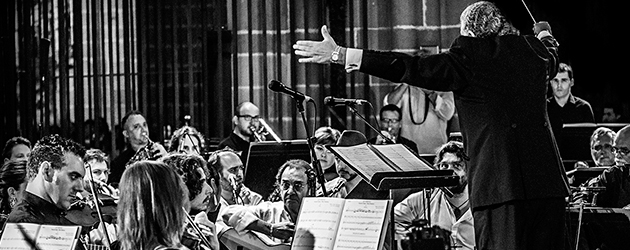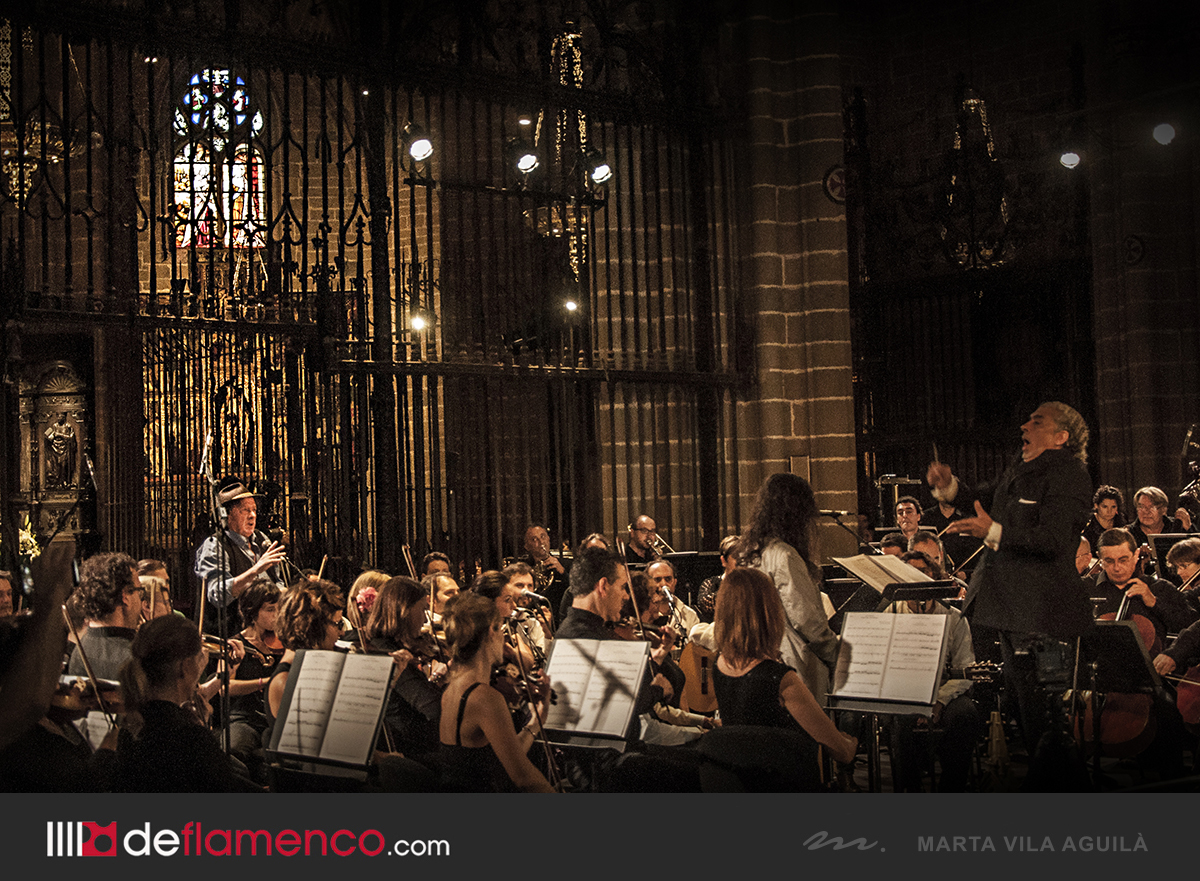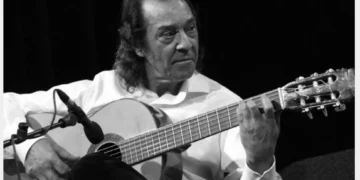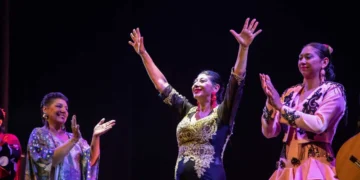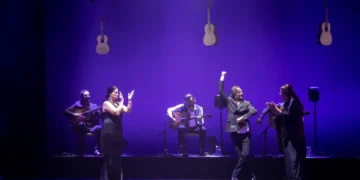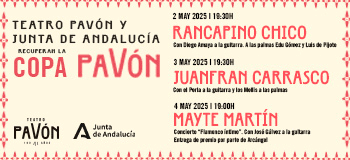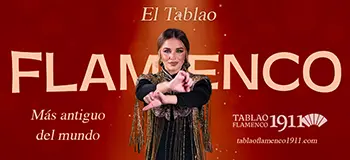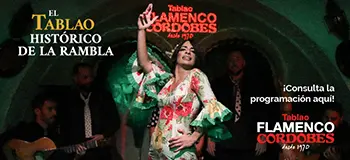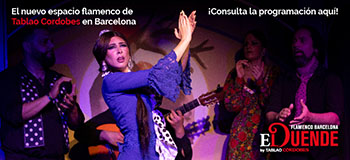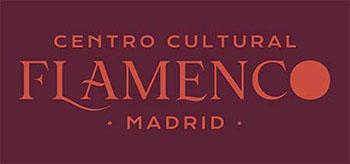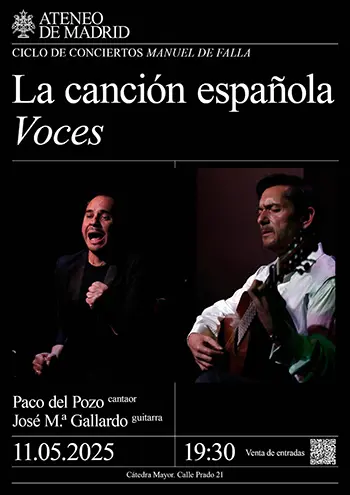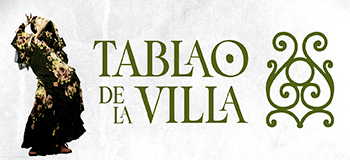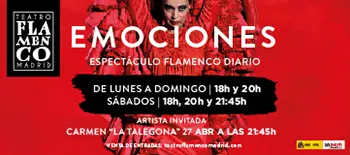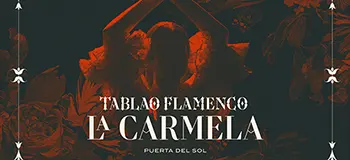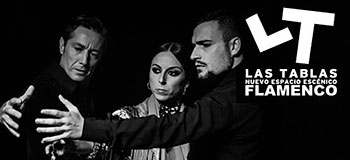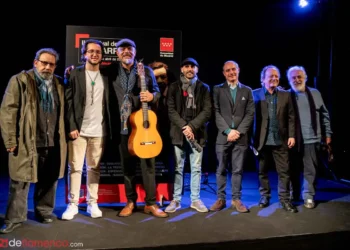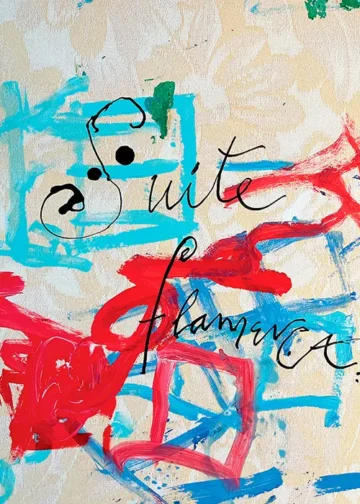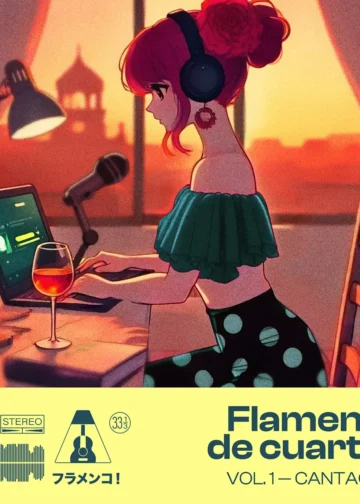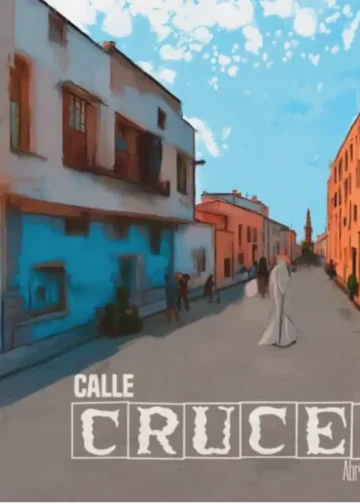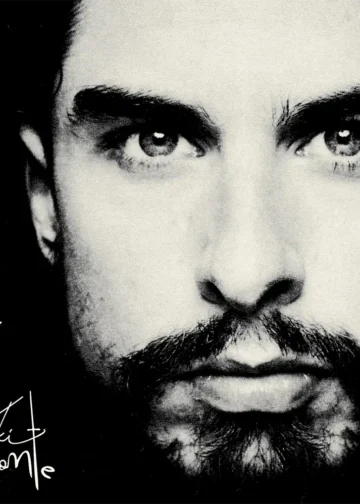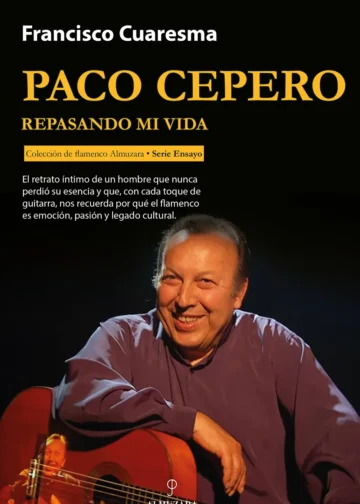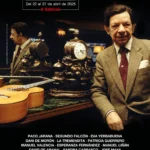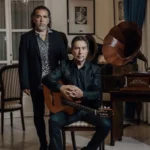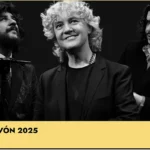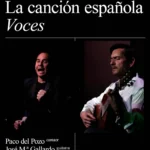Texto: Curro Velázquez-Gaztelu
Photos: Marta Vila Aguilà
Filled to overflowing, the flamenco mass conducted by Paco Suárez opens the official program of «Flamenco on Fire»
You'd think the Festival «Flamenco On Fire» had been going on for ten years. That's the impression most of us here get. A festival that just began its second edition, while giving the appearance of having been around this area of Navarra for a long time. Its identification, among others, is the strong program and organization. Artists, journalists, speakers, etc., all feel at home being able to share these days with their audience and colleagues. That the focus of attention is Sabicas, is also a positive factor that makes everyone give their all to make everything come out just right. «Gaz Kaló» , the Navarra Federation of gypsy associations, also contributes so that «Flamenco On Fire» is more than just another festival. They contribute their capacity to attract people, their experience and their spirit to make everything go smoothly.

For Sunday's flamenco mass at midday, nothing was spared by the festival's organization, the Orquesta Filarmónica Navarra itself, as well as the municipal government and the Navarra religious chapter. At the outset, church authorities were uncertain about permitting the staging of a flamenco mass within the cathedral. Bot in the end an agreement was reached, and this meeting of the divine and the human was able to take place. An exceptional event, completely out of the ordinary, unrepeatable. Face to face, northern culture with its modal music in major and minor tones, along with that of Greek and Hindu cultures executed in other modes and scales. Flamenco is the only Western music that still preserves these oriental forms.
The overture was soleá interpreted by Selín, a gypsy from Tudela: «I sing to the earth and the heavens with my voice…» with orchestra and guitar. Following this, Pepe Habichuela, Josemi Carmona and Jorge Pardo got into soleá por bulerías. The Epiphany with its own aroma of incense that reached every corner of the cathedral, became tango-rumba preceded by the sound of bells from inside the church: «The love of God has power…» sung in chorus with guitar and orchestra. The Orquesta Sinfónica de Navarra carries important baggage. It is composed of a group of men and women, as well as characteristic instruments of this type of group, string, wind and percussion. The main part of the Eucharist, the most religious portion, is the «Kyrie Eleison», «God have mercy» in Greek. Homily and Offertory. The Consecration was done as a polo, interpreted by Kike Morente, with the guitars of the Habichuelas. He dedicated the mass to the memory of Agustín Castellón Campos, «Sabicas», who was baptized in this cathedral in 1912. Suffrage for his eternal rest. The religious meaning of the prayer was respected at every moment, in this case, the Lord's Prayer. Orchestra, chorus and flamenco as a single voice.
Morente sang fandangos with orchestra and guitar, which led to the Rito de la Paz with the flamenco group. All together, and following the lead of Paco Suárez, the musical director of this project. Tonás also had a place in this mass, with local singer Yoli Muñoz. The Lord's Prayer was sung por tangos by Remedios Amaya. The Rito de la Paz: «Let us all hold hands». Kike Morente with siguiriyas to orchestra and guitar. This was the moment dancer Juan Ramírez from Badajoz made time to carry out the communion. Everyone present, believers or not, overcome with emotion knowing this was a historic and unrepeatable moment. People were standing, looking for any little space to see what was happening Paco Suárez' highly personalized version of Schubert's Ave María. Chorus, orchestra, guitar and Remedios Amaya. The works, after an hour and a half. «Podéis ir en Paz» to tango-rumba from the beginning of the mass. Maestro Paco Suárez called for all those present to clap in time. «The love of God has power».
It was wonderful to see how the members of the Orquesta Filarmónica de Navarra enjoyed the flamenco interpretations. You could see in their faces the admiration for this artform. The cathedral's organ began to sound, the icing on the cake by the chapel master of the Pamplona cathedral. A truly unique experience, where upon entering you had to put aside all prejudice and open your five senses. Some saw it as a flamenco-symphonic performance, and others, as a peculiar Sunday mass at 12 noon, with new elements and sounds. All were able to appreciate the work that goes into this type of presentation. No negative comments were heard at any point. Each and every person had a beautiful experience, richer than what is usually felt at the end of any kind of performance.



